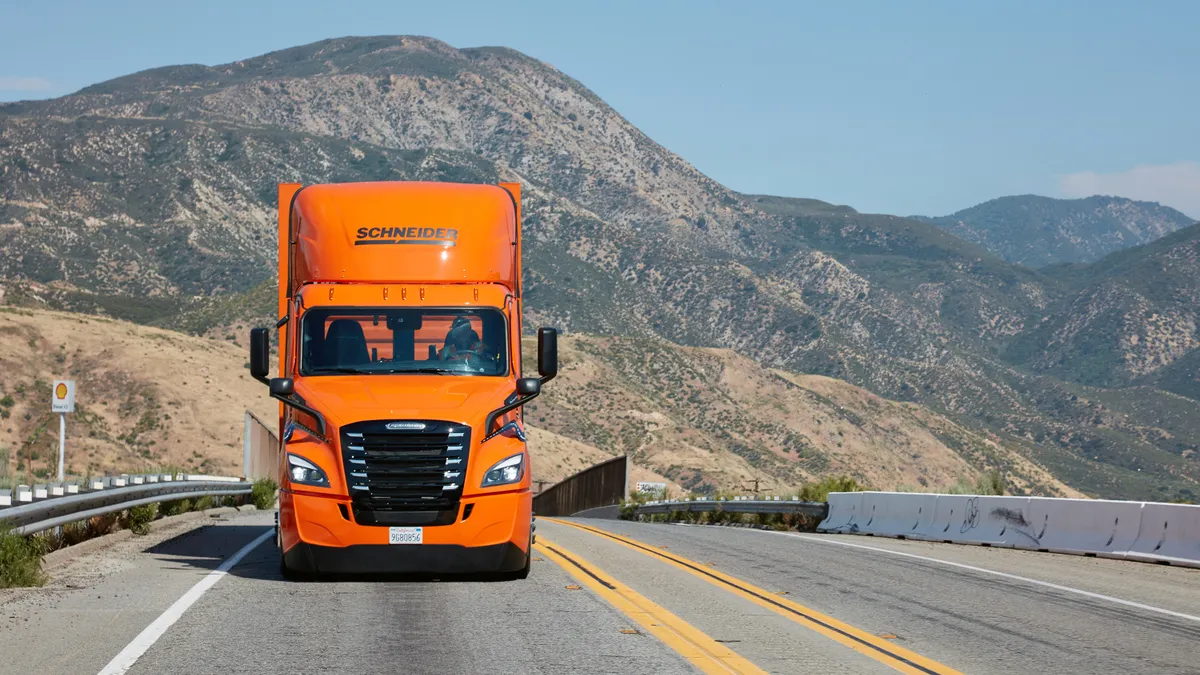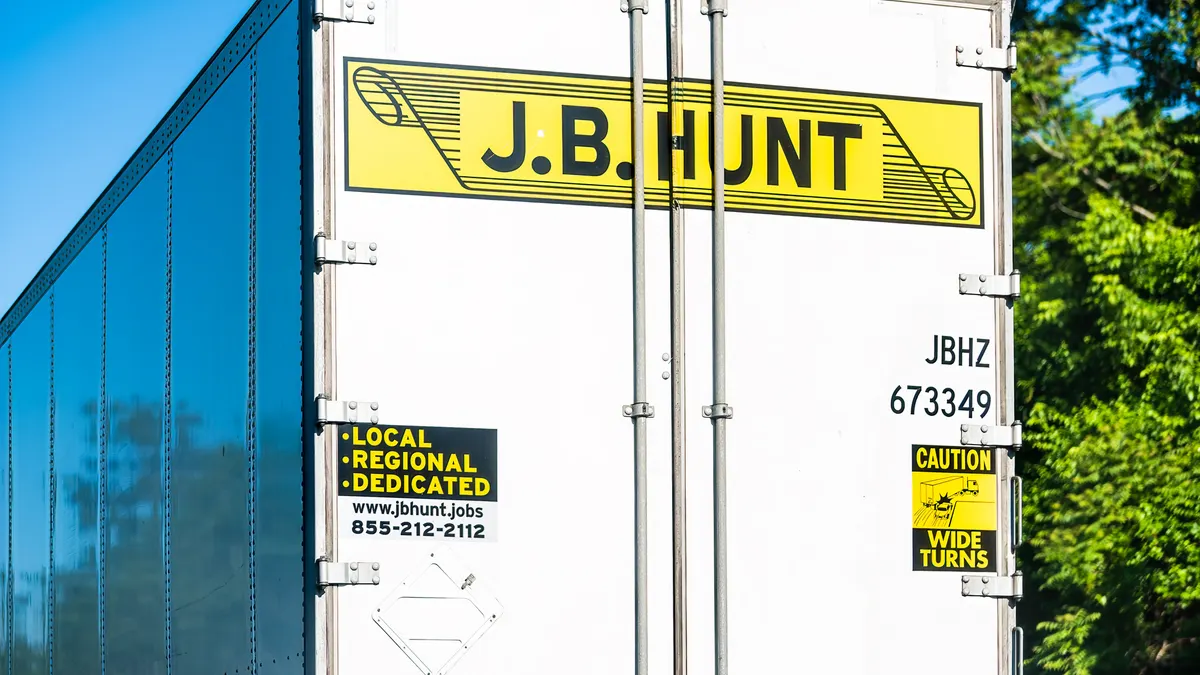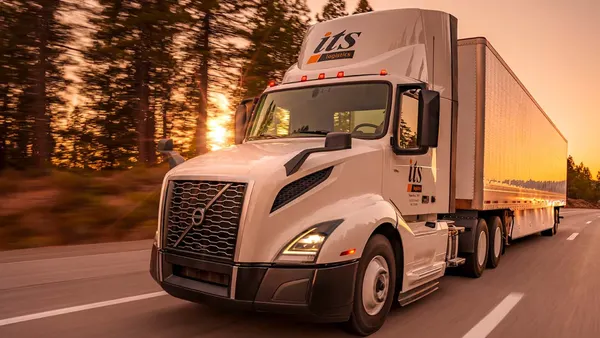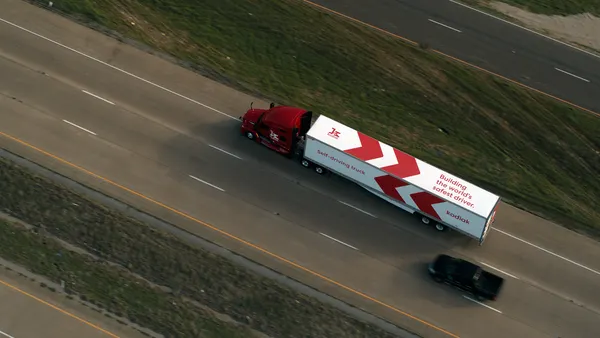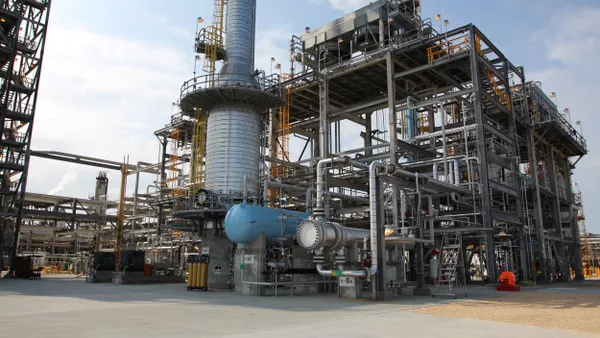Dive Brief:
- Schneider National’s Freightliner eCascadia EV truck fleet in California has hauled customer freight more than 1 million miles without emissions this year, the carrier announced Monday.
- With more stringent emissions rules coming to the state Jan. 1, the carrier’s EV fleet, coupled with its intermodal service, provides an attractive option to the “sophisticated shipper” seeking to reduce emissions, President and CEO Mark Rourke said during a Nov. 2 earnings call.
- After Jan. 1, any new trucks hauling cargo at the San Pedro Bay ports must be zero emission, part of a larger effort for California to begin phasing out diesel trucks.
Dive Insight:
Schneider’s investment in EVs and charging infrastructure may provide the carrier with a competitive advantage, particularly in California, EVP and CFO Stephen Bruffett said during the call.
Schneider has invested in EVs and charging technology in California for some time, taking advantage of government grants and other resources to bolster its EV fleet in the state to more than 90 electric trucks.
“We’ve been able to take advantage of that opportunity,” Bruffett said.
The EV trucks have removed about 3.3 million pounds of carbon dioxide emissions, according to the carrier.
Schneider installed a nearly five-megawatt charging station at its South El Monte Intermodal Operations Center in Southern California this summer.
The company deployed two electric terminal tractors at its Rancho Cucamonga, California, cross dock in August. Its fleet of EV tractors in the state are used in short-haul, high-density markets in Southern California.
Jonathan Phares, assistant professor of supply chain management at Iowa State University, recognizes the potential advantage Schnieder has over its competitors. As 2014 model year trucks reach their end-of-life cycle in the next few years, Schneider will be ahead of the game, he wrote in an email to Trucking Dive.
Since California tends to set the tone other states follow, it’s possible Schneider’s investments in the state may be laying the groundwork for long-term success as zero-emissions rules spread nationally, Phares said.


